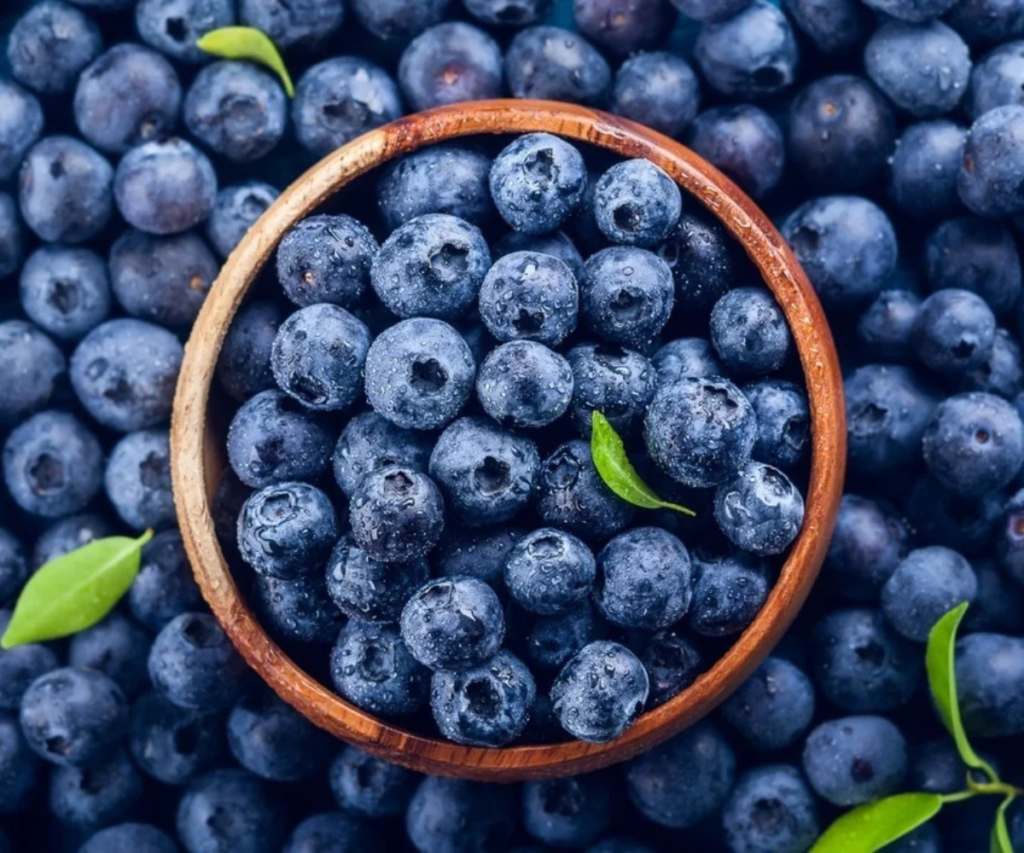Introduction
In recent years, the humble blueberry has risen to fame as one of the most powerful superfoods in nature. Beyond its pleasant taste and versatility, this tiny fruit is celebrated for the cardiovascular benefits of blueberries, which make it a top choice for supporting a healthy heart. Packed with antioxidants, vitamins, and phytochemicals, blueberries help promote strong heart and vascular function while protecting against oxidative stress.

Scientific studies have linked regular blueberry consumption with a lower risk of cardiovascular conditions such as high blood pressure, poor circulation, and arterial stiffness. While it might be easy to overlook such a small fruit, the biochemical interactions it triggers in the body are nothing short of extraordinary. Understanding how blueberries contribute to heart health requires exploring their composition, mechanisms of action, and long-term effects on blood vessels, cholesterol levels, and inflammation.
This comprehensive guide explores the cardiovascular benefits of blueberries in detail — from their nutritional makeup and active compounds to the science-backed reasons why they deserve a permanent spot in your diet.
Nutritional Composition of Blueberries
Blueberries are naturally low in calories but high in nutrients. Approximately 100 grams of fresh blueberries provide:
- Water: 84%
- Carbohydrates: 9.7%
- Protein: 0.6%
- Fat: 0.4%
- Fiber: 2.4 grams
- Vitamin C: Around 10 mg (about one-third of the daily recommended intake)
- Vitamin K, E, and B6: Present in smaller but significant amounts
However, what truly makes blueberries exceptional is their concentration of polyphenolic compounds, especially anthocyanins, the pigments responsible for their rich blue color. These bioactive compounds are directly associated with reduced oxidative stress, improved blood vessel elasticity, and better cholesterol regulation.
Anthocyanins – The Heart’s Best Friend
Anthocyanins are a subclass of flavonoids found in high amounts in blueberries. They help neutralize free radicals — unstable molecules that can damage cells and accelerate aging. In cardiovascular health, this means fewer oxidized LDL particles, less plaque buildup in arteries, and a lower risk of inflammation that contributes to hypertension and atherosclerosis.
How Blueberries Support Cardiovascular Health
Improving Endothelial Function
The endothelium is a thin membrane that lines the blood vessels and regulates vascular relaxation, blood clotting, and immune function. When this lining becomes dysfunctional, it contributes to several cardiovascular problems. Blueberries have been found to enhance endothelial nitric oxide synthase (eNOS) activity, increasing the production of nitric oxide (NO) — a molecule that relaxes blood vessels, improves circulation, and lowers blood pressure naturally.
Reducing Inflammation
Inflammation is one of the primary drivers of cardiovascular disease progression. Anthocyanins in blueberries act on inflammatory pathways by downregulating the expression of pro-inflammatory cytokines, including TNF-α and IL-6. This helps reduce vascular inflammation and maintains healthy arterial walls.
Regular intake of blueberries leads to a measurable reduction in C-reactive protein (CRP), a marker used to assess inflammation in the blood.

Controlling Oxidative Stress
Oxidative stress occurs when the body’s antioxidant defenses are overwhelmed by free radicals. Over time, this imbalance damages lipids, proteins, and DNA — all of which accelerate vascular aging. Blueberries increase total plasma antioxidant capacity (TAC), enabling the body to combat oxidative damage more efficiently. Cardiovascular Benefits of Blueberries.https://www.youtube.com/watch?v=bouLJ1JTHyE
Impact on Cholesterol and Lipid Metabolism
Dyslipidemia — or the abnormal accumulation of cholesterol and triglycerides — is a major risk factor for heart problems. Blueberries influence cholesterol metabolism in multiple ways:
- Reducing LDL oxidation: Prevents plaque formation in arteries.
- Increasing HDL (good cholesterol): Helps remove excess cholesterol from blood vessels.
- Improving lipid transport: Promotes a healthier balance of lipids within the bloodstream.
Studies have demonstrated that consistent blueberry consumption leads to measurable reductions in LDL oxidation and improved lipid peroxidation profiles.
Regulation of Blood Pressure
High blood pressure, or hypertension, is a silent killer that often goes unnoticed until serious damage has occurred. The polyphenolic compounds in blueberries relax the smooth muscles of blood vessels, improving their ability to dilate. This results in better vascular compliance — the ability of arteries to expand and contract easily.
Consuming blueberries regularly for 6–8 weeks has been shown to significantly reduce systolic and diastolic blood pressure in people with prehypertension or metabolic syndrome.
Blueberries and Blood Sugar Control
Poor glucose regulation is linked with both Type 2 diabetes and heart complications. Blueberries slow carbohydrate digestion by inhibiting digestive enzymes such as α-amylase and α-glucosidase, leading to lower post-meal glucose spikes. The anthocyanins and fiber present in blueberries also enhance insulin sensitivity, helping cells absorb glucose more efficiently.
This dual benefit — improved insulin response and reduced oxidative stress — makes blueberries a perfect dietary addition for individuals with prediabetes or metabolic syndrome.
Metabolic Syndrome and Cardiovascular Protection
Metabolic syndrome is characterized by abdominal obesity, elevated triglycerides, low HDL, high blood pressure, and high blood glucose. These factors together amplify cardiovascular risk. Cardiovascular Benefits of Blueberries.
Blueberries help combat each of these symptoms through multiple mechanisms:
- Reducing abdominal fat deposition by regulating lipid metabolism.
- Improving lipid profiles through anthocyanin activity.
- Enhancing insulin sensitivity and glucose metabolism.
- Lowering inflammation at the vascular and cellular level.
Antioxidants: The Shield Against Vascular Damage
The antioxidants in blueberries are not limited to anthocyanins. They also contain flavonols, flavan-3-ols, vitamin C, and vitamin E, which work synergistically to protect the cardiovascular system.
The Role of Vitamin C and E
Vitamin C acts as a water-soluble antioxidant that neutralizes free radicals in plasma, while Vitamin E protects lipid membranes from peroxidation. Together, they improve red blood cell stability and prevent endothelial injury.
The Science Behind Anthocyanins and Blood Vessels
Anthocyanins influence vascular smooth muscle by stimulating guanylate cyclase activity, an enzyme that facilitates blood vessel relaxation. This leads to improved vasodilation, which means blood can flow more freely through arteries and veins.
This mechanism is particularly beneficial for older adults, as arterial stiffness naturally increases with age. Blueberries help counteract this effect, maintaining youthful elasticity in blood vessels.
Recommended Intake and Lifestyle Integration

The best results are seen when blueberries are consumed regularly.
- For general health: 1–2 servings per week.
- For cardiovascular benefits: 1 cup daily (approximately 150 grams).
Long-term studies show that daily blueberry intake for 6 months can significantly improve arterial stiffness, lower blood pressure, and enhance overall vascular health.
Easy Ways to Include Blueberries in Your Diet
- Add fresh or frozen blueberries to oatmeal, yogurt, or smoothies.
- Sprinkle them over salads for a sweet-tart twist.
- Bake them into whole-grain muffins or pancakes.
- Mix them with nuts for a nutrient-dense snack.
The Gender Factor in Blueberry Research
Some research suggests that the cardiovascular benefits of blueberries may vary slightly between men and women. While women tend to show better antioxidant responses, men demonstrate stronger improvements in vascular reactivity and cholesterol management. This difference might be due to hormonal variations influencing metabolic response.
Nonetheless, both genders gain significant heart-protective benefits from consistent blueberry consumption.
Beyond the Heart: Systemic Benefits
While this article focuses on cardiovascular benefits, it’s worth noting that blueberries support the entire body system. Their antioxidants also promote brain health, reduce DNA damage, and enhance immune function. Improved blood flow benefits every organ, ensuring optimal oxygen delivery and nutrient distribution. Cardiovascular Benefits of Blueberries.
Conflicting Studies and Scientific Challenges
Despite overwhelming evidence, a few studies report inconsistent outcomes, mainly due to differences in methodology. Variations in sample size, diet control, and duration can affect results. Additionally, whole blueberries tend to offer more benefits than processed juices because the fiber matrix in whole fruit slows sugar absorption and improves nutrient delivery.
Another variable is bioavailability — how much of the anthocyanins the body actually absorbs. While some compounds are metabolized quickly, continuous consumption helps maintain a beneficial concentration in the bloodstream. Cardiovascular Benefits of Blueberries.
Synergistic Effects with Other Foods
Blueberries work even better when combined with other heart-friendly foods such as:
- Oats (for soluble fiber)
- Almonds and walnuts (for healthy fats)
- Dark chocolate (for flavonoids)
- Green tea (for catechins)

These combinations create synergistic antioxidant effects, providing layered protection against cardiovascular stress.




